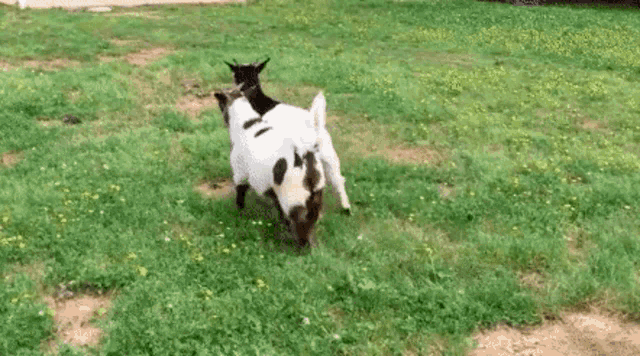Few animals capture the imagination like the fainting goat. These playful, quirky animals explode in popularity online thanks to hilarious videos of them toppling over at the slightest scare. But what’s actually happening? And is it as funny for them as it is for us to watch? Here are fun facts, science, and care tips for fainting goats—plus answers to your burning goat questions!
What Is a Fainting Goat?
The fainting goat, also called the myotonic goat or Tennessee fainting goat, is a breed famous for a unique trait: when startled, their muscles suddenly stiffen and sometimes they fall over for a few seconds. Despite the dramatic appearance, these goats do not actually lose consciousness, so they aren’t really fainting! Instead, they have a genetic condition called myotonia congenita, which causes their muscles to “lock up” temporarily when surprised.
- Other names: Tennessee Meat Goat, Wooden Leg Goat, Nervous Goat, Stiff Leg Goat, Texas Wooden Leg
- Size: Typically smaller than common dairy or meat goats
- Personality: Calm, gentle, and often sociable
Is It Dangerous or Painful?
Fainting goats are not hurt or distressed by their condition. Still, because they can’t always flee from threats, it’s important not to scare them just for entertainment.

Fun Facts About Fainting Goats
Fainting goats? Yep, they’re real, and no, they’re not pretending. These quirky creatures are famous for “fainting” when startled, and have earned fans around the world for their unusual behavior. But what’s really happening? Let’s dive into some fun and surprising facts about fainting goats!
1. They Don’t Actually Faint
Despite the name, fainting goats don’t lose consciousness. When surprised, their muscles temporarily stiffen due to a condition called myotonia congenita. They may freeze or fall over, but they stay completely awake the entire time. The episode usually lasts less than 20 seconds.
2. It’s All in the Genes
Fainting goats have a genetic mutation that causes their muscles to contract and lock up when they’re excited or startled. The condition is known as myotonia congenita. It’s completely harmless and doesn’t cause the goat pain, just a lot of funny YouTube videos!
3. They’re Also Called “Myotonic Goats”
“Fainting goat” is the popular nickname, but their official name is Myotonic goat. They’re also known as Tennessee Fainting Goats because they were first bred in the U.S. in the 1880s, particularly in Tennessee.
4. Fainting Helps Protect the Herd
In a predator situation, a fainting goat falling over might distract a predator long enough for the rest of the herd to escape. While not a guaranteed survival strategy, some believe this quirky trait may have had protective value.
5. They Make Great Pets
Fainting goats are friendly, calm, and easy to manage. Because they’re less likely to jump fences (due to their muscle stiffness), many farmers and homesteaders love them as pets or companion animals. Plus, they’re just plain adorable.
6. No Two Faint the Same
Some goats just freeze up, others fall over, and a few might not “faint” at all. The reaction varies depending on the individual goat and how severe their myotonia is. With age, many goats also learn how to stay upright even when their legs stiffen.
7. They’re Often Smaller Than Other Goats
Fainting goats are considered a medium to small breed. Most adults weigh between 60 to 175 pounds, and they have sturdy builds and wide-set eyes that give them a very distinctive (and cute) look.
8. They’re Popular in Petting Zoos and Viral Videos
Because of their unique reaction and friendly nature, fainting goats are a hit in petting zoos, hobby farms, and internet videos. Watching them stiffen and topple (harmlessly!) never seems to get old.
9. They’re Not Just a Joke, They’re Livestock
While they’re often known for their entertainment value, fainting goats are also raised for meat, breeding, and even show purposes. Their muscle tone and temperament make them good livestock animals in small farm settings.
10. They Need Just as Much Love and Care
Like any other goat, fainting goats need proper food, shelter, regular vet check-ups, and lots of room to roam. They’re hardy and relatively low-maintenance, but they thrive best in social, stimulating environments.
How to Care for Fainting Goats
- Space to play: Even though they aren’t as athletic as other goats, fainting goats need a secure pasture to roam and interact.
- Hydration: Always provide fresh, clean water.
- Health checks: Regularly inspect hooves, coat, and general wellness. Make sure vaccinations are up to date.[source]
- Gentle handling: Avoid scaring your goats on purpose; their “fainting” should never be a party trick.
FAQs: All About Fainting Goats
Can fainting goats live normal lives?
Yes! Most lead healthy, happy lives with the right care. With good fencing and protection from predators, they thrive as pets or farm animals.
Is fainting dangerous for these goats?
Not typically. The condition itself is not painful, but falling can cause minor injuries if the environment isn’t safe. Good pasture management is important.
Are fainting goats good with kids and other animals?
Yes. Their calm, friendly nature makes them excellent around children and other livestock. Just remember to treat them with kindness and never startle them on purpose.
Can you breed fainting goats?
Absolutely! The fainting trait is inherited. Responsible breeders select for healthy goats with good temperaments, and always prioritize their well-being.
If you’re looking for a pet that’s full of personality and guaranteed to bring smiles, fainting goats are a wonderful, if slightly wobbly, choice!


